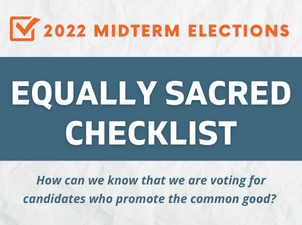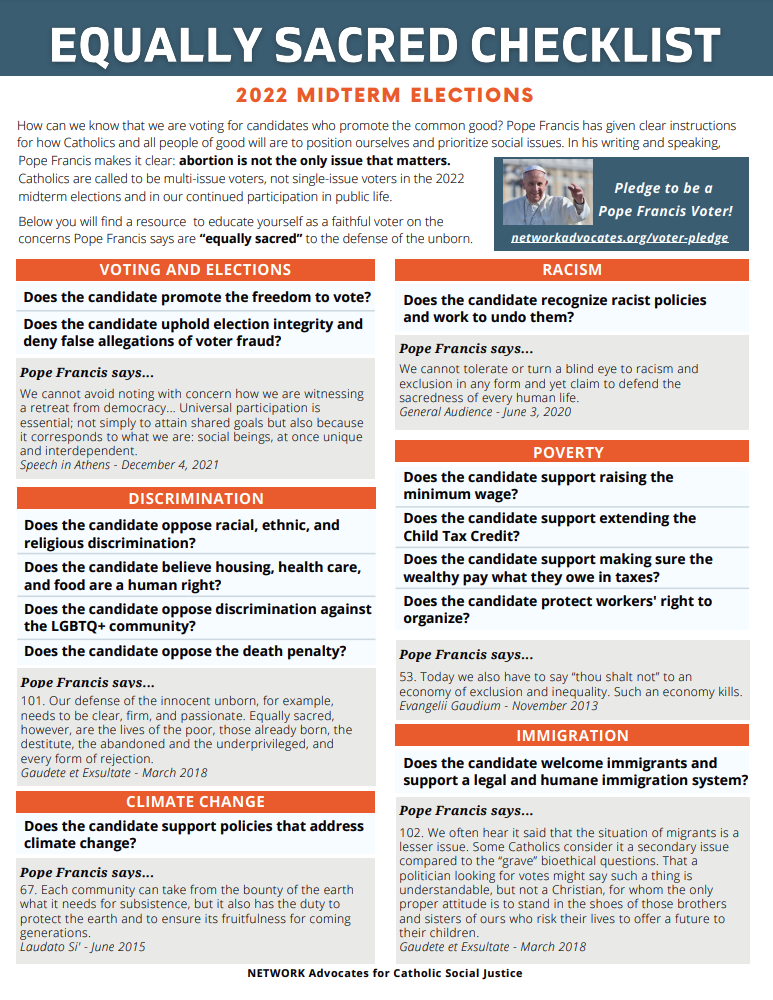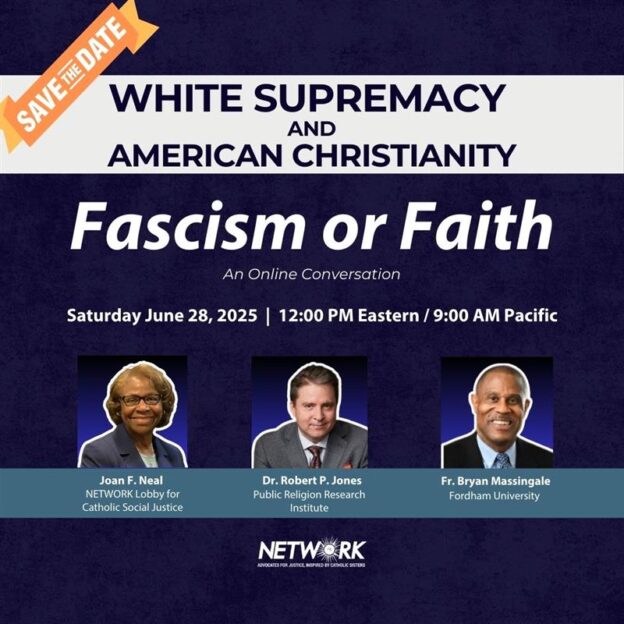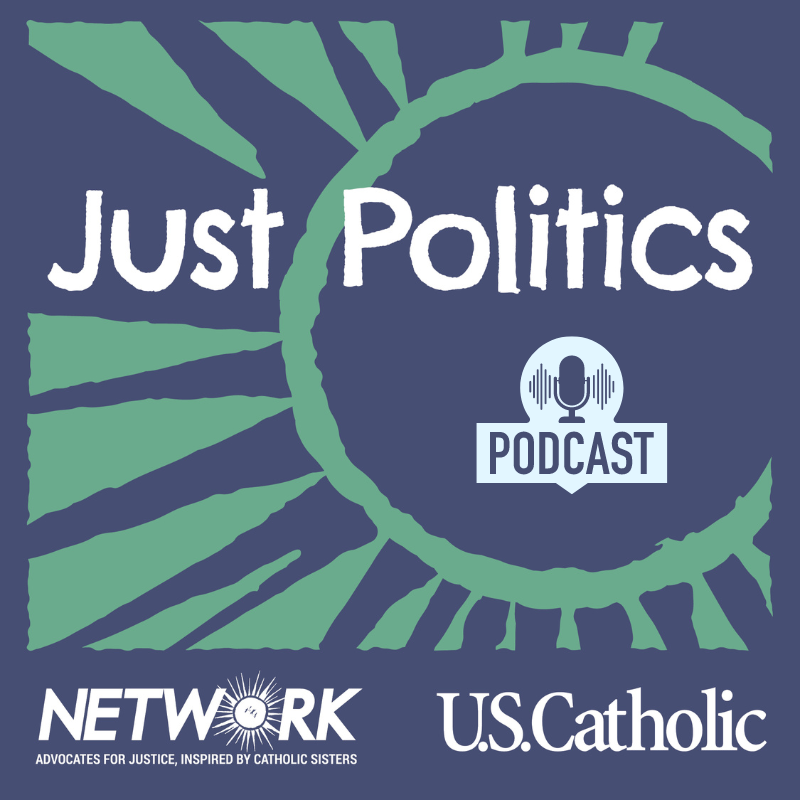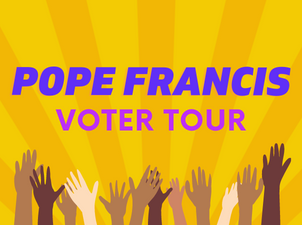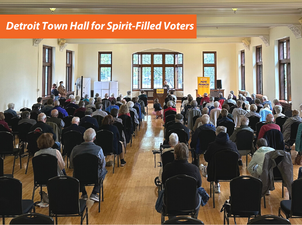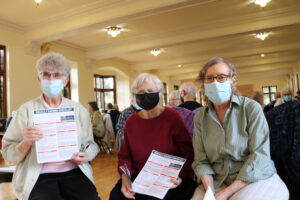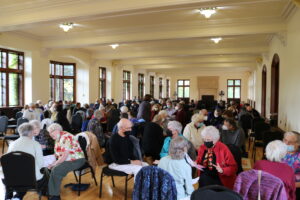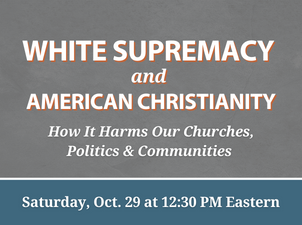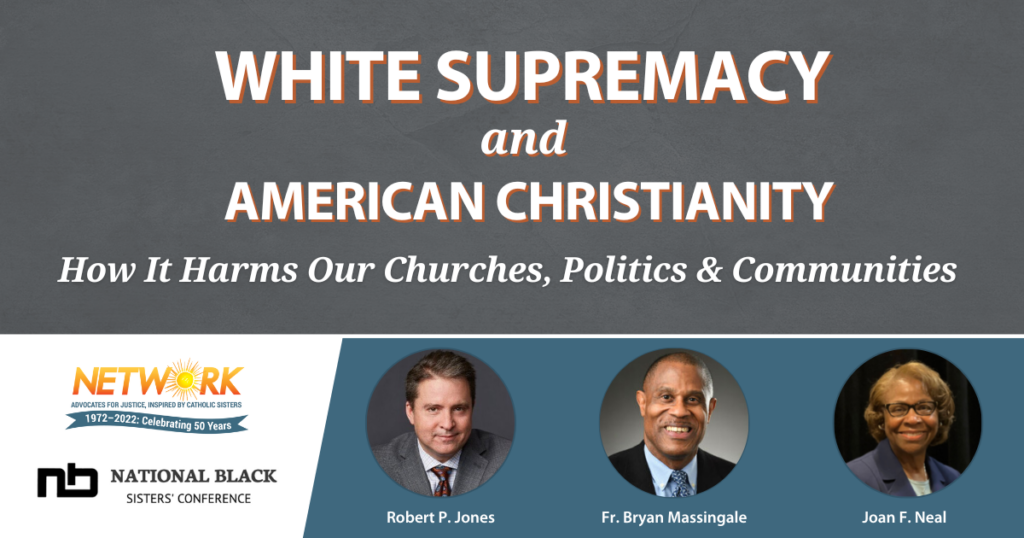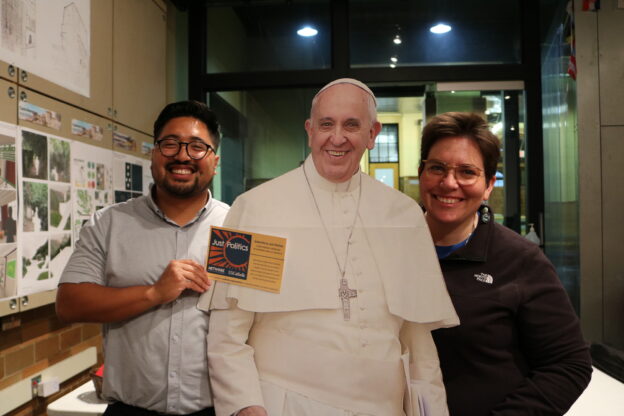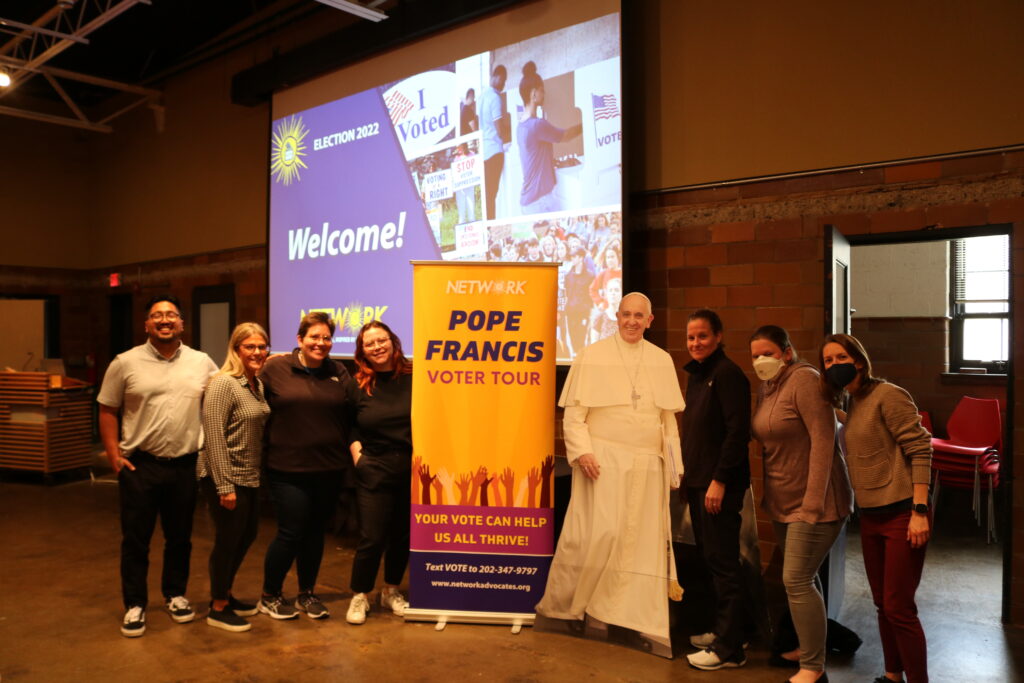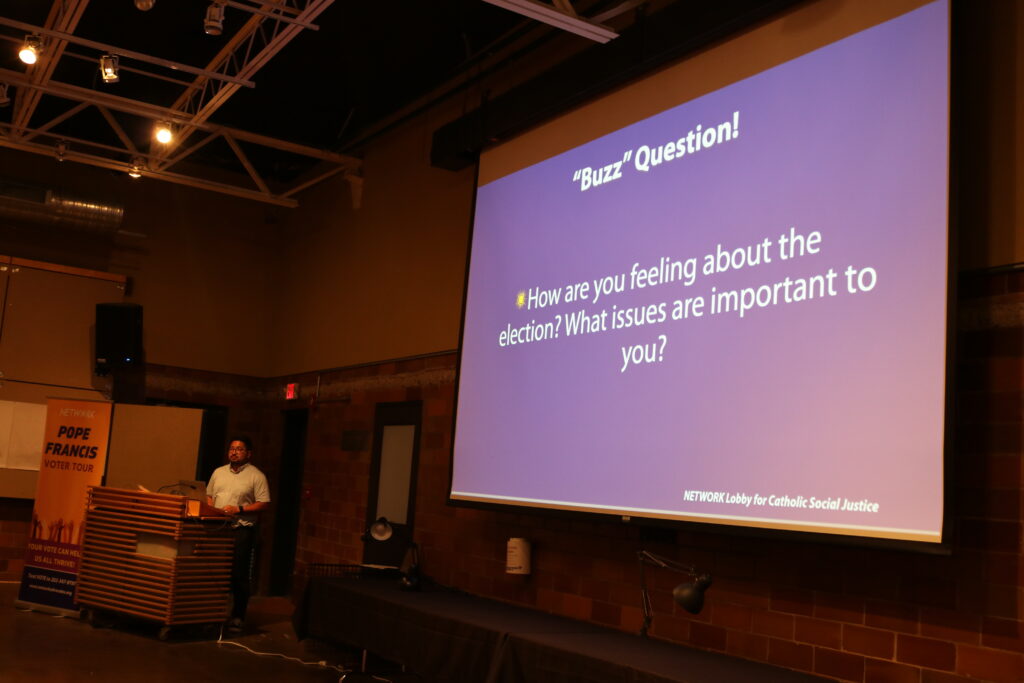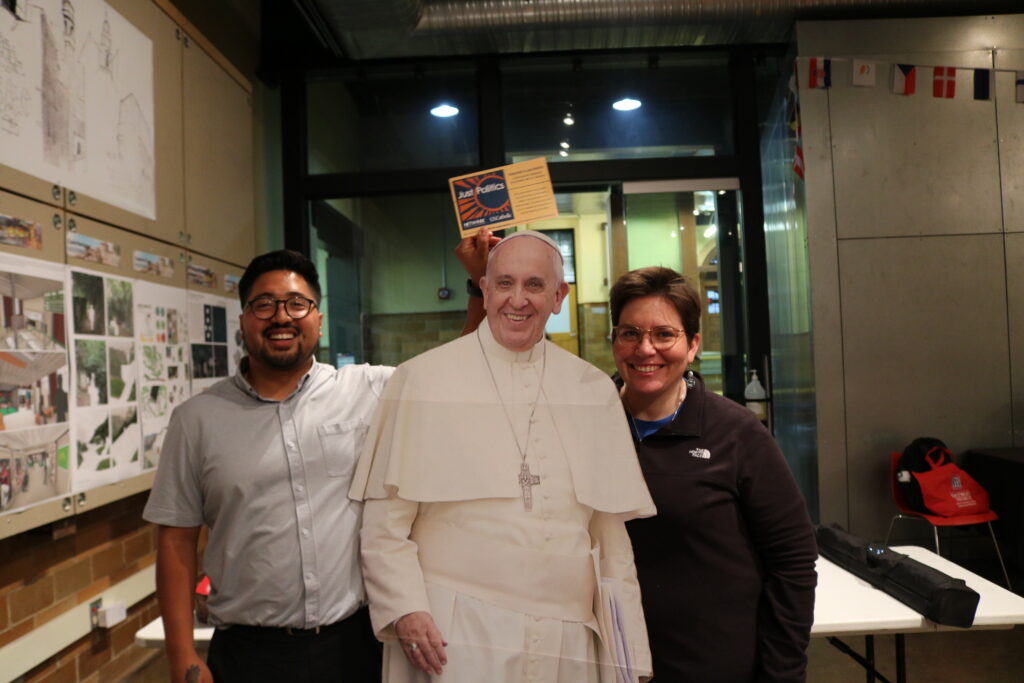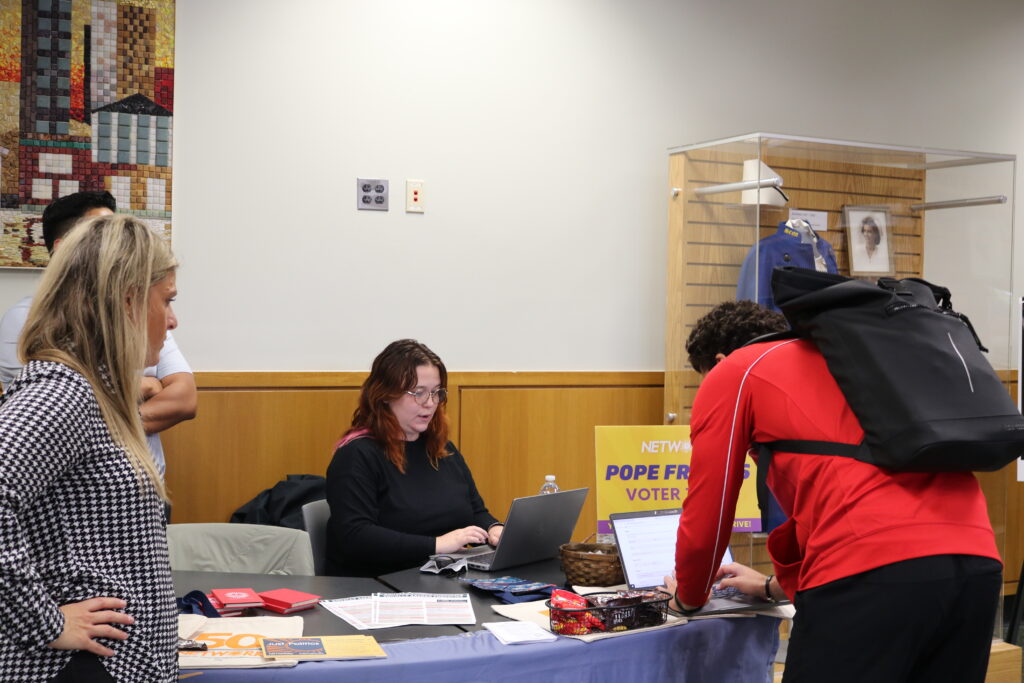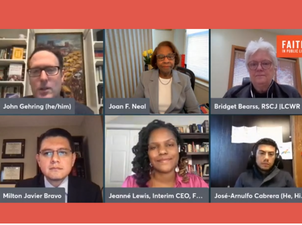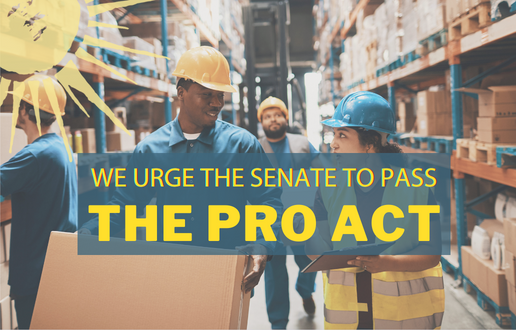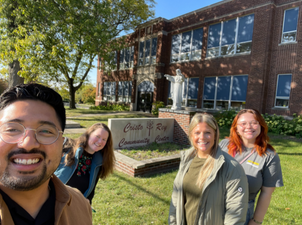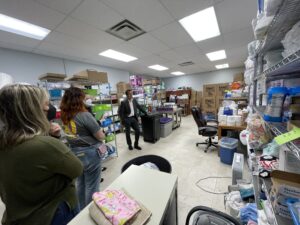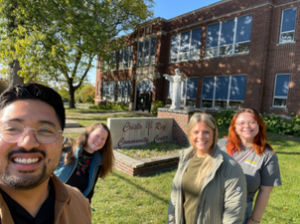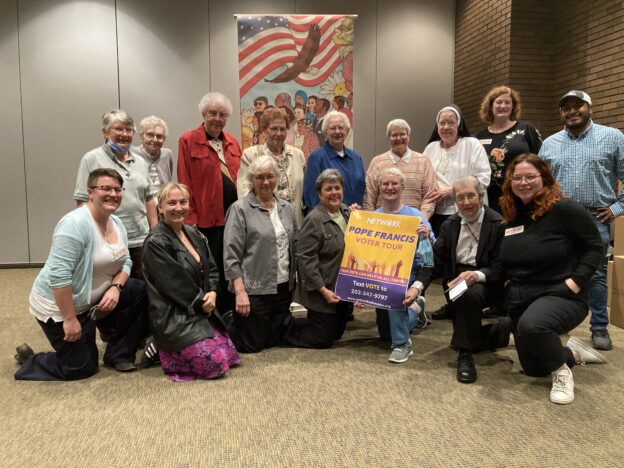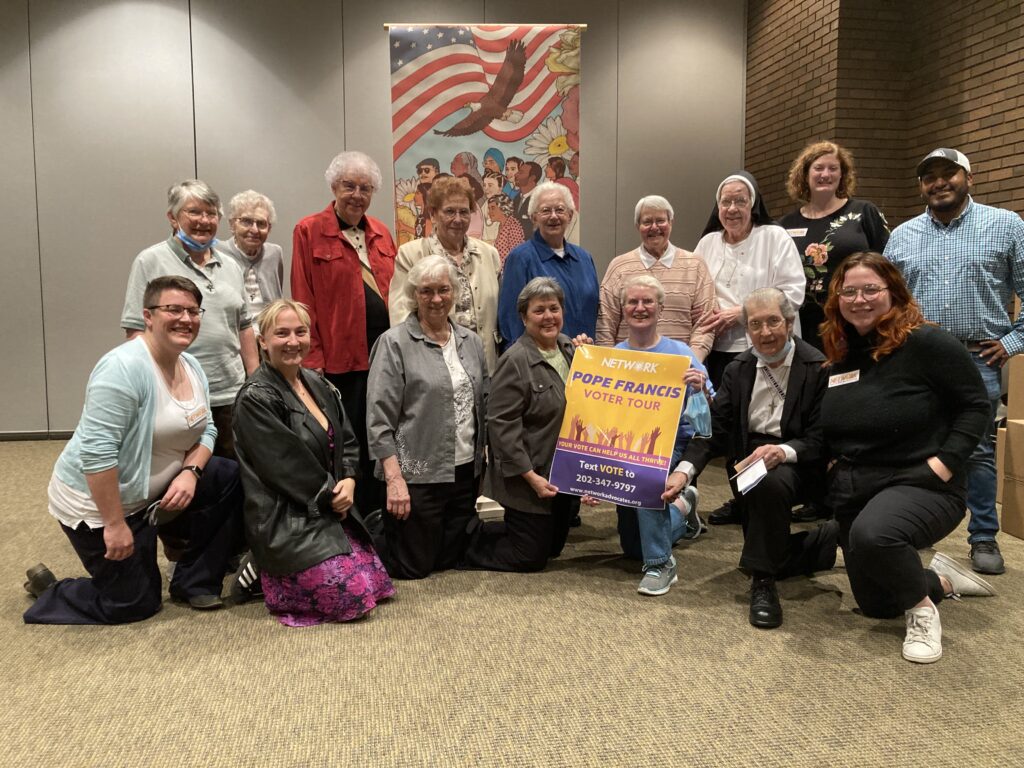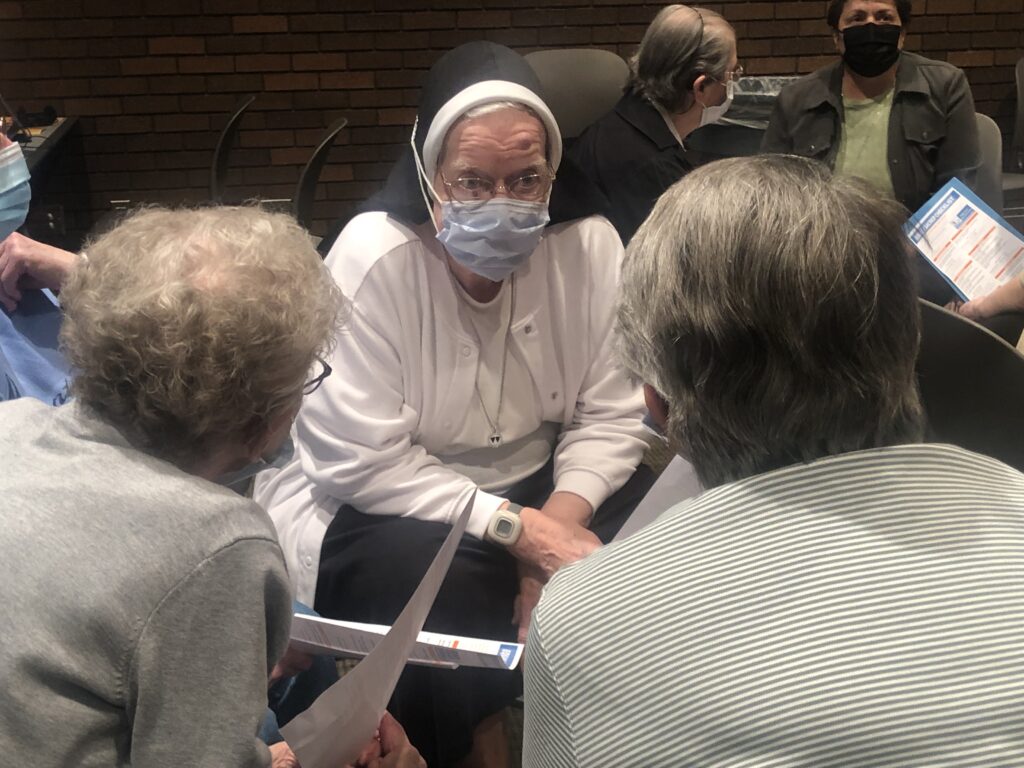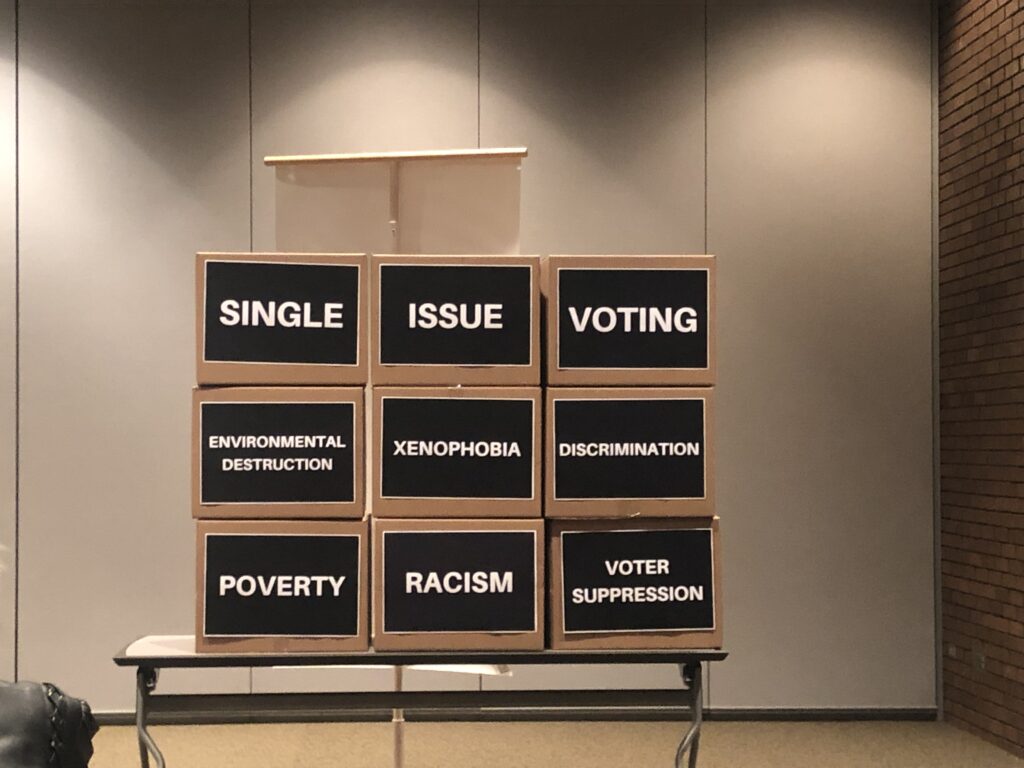
The Equally Sacred Checklist is Here!
October 25, 2022
Available Now: Download the Equally Sacred Checklist
How can we know that we are voting for candidates who promote the common good? Pope Francis has given clear instructions for how Catholics and all people of good will are to position ourselves and prioritize social issues.
In his writing and speaking, Pope Francis makes it clear: abortion is not the only issue that matters. Catholics are called to be multi-issue voters in the 2022 midterm elections and in our continued participation in public life. Use the Equally Sacred Checklist as a guide to reflect on the concerns that Pope Francis says are “equally sacred” to the defense of the unborn.
Share the Equally Sacred Checklist with your friends, family, fellow activists, and faith community members.
Check out these sources to learn more about what Pope Francis says:
- Gaudete et Exsultate “Rejoice and Be Glad”
- Evangelii Gaudium “The Joy of the Gospel”
- Laudato Si’ “On Care for Our Common Home”
- June 3, 2020 General Audience
- December 4, 2021 Speech in Athens







